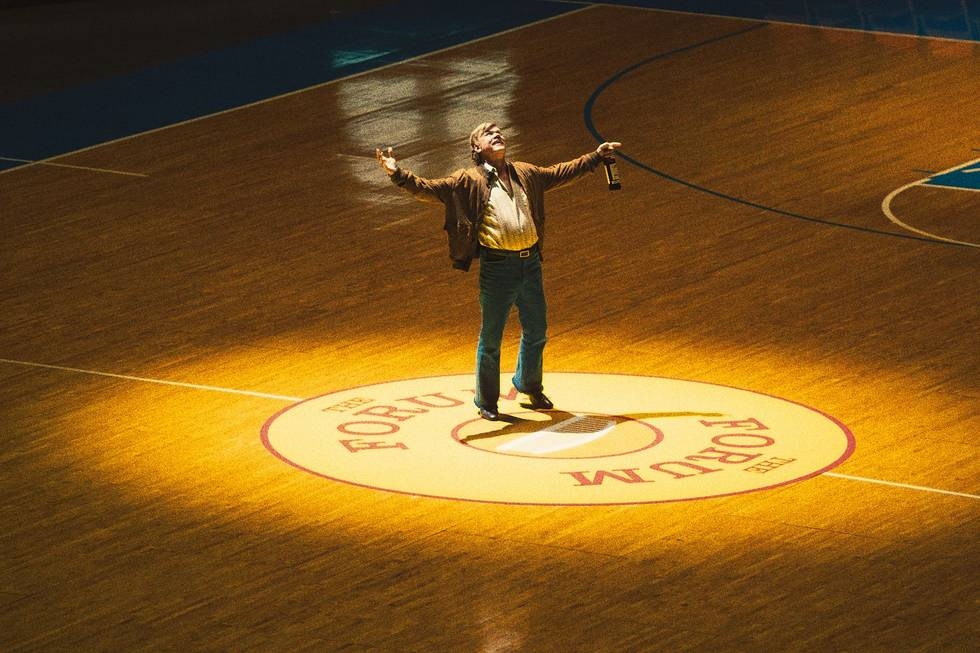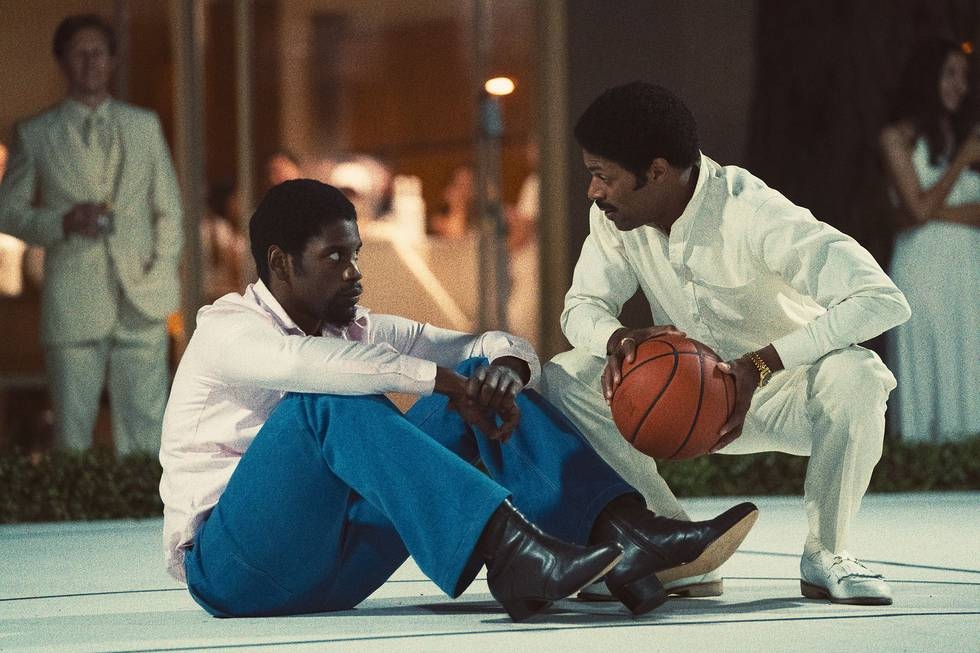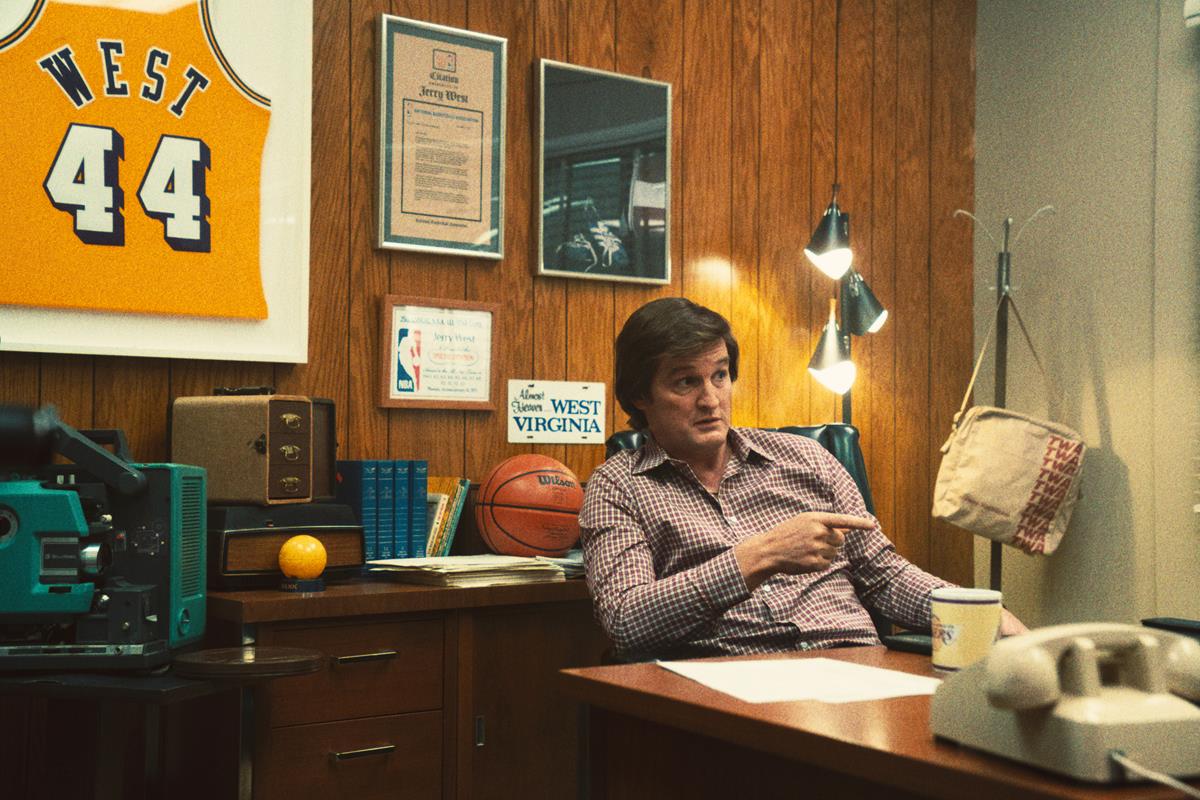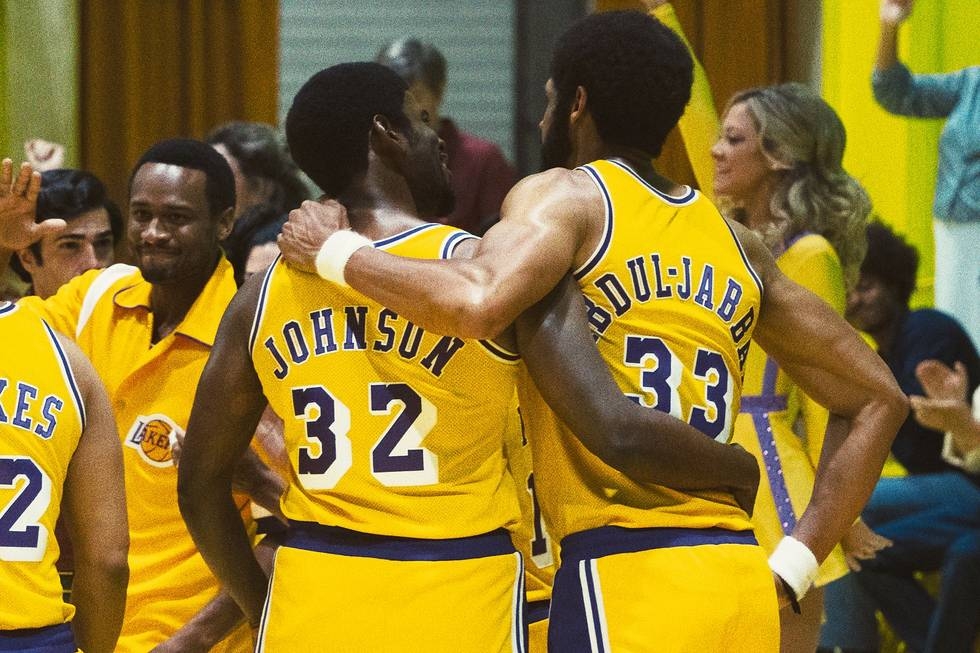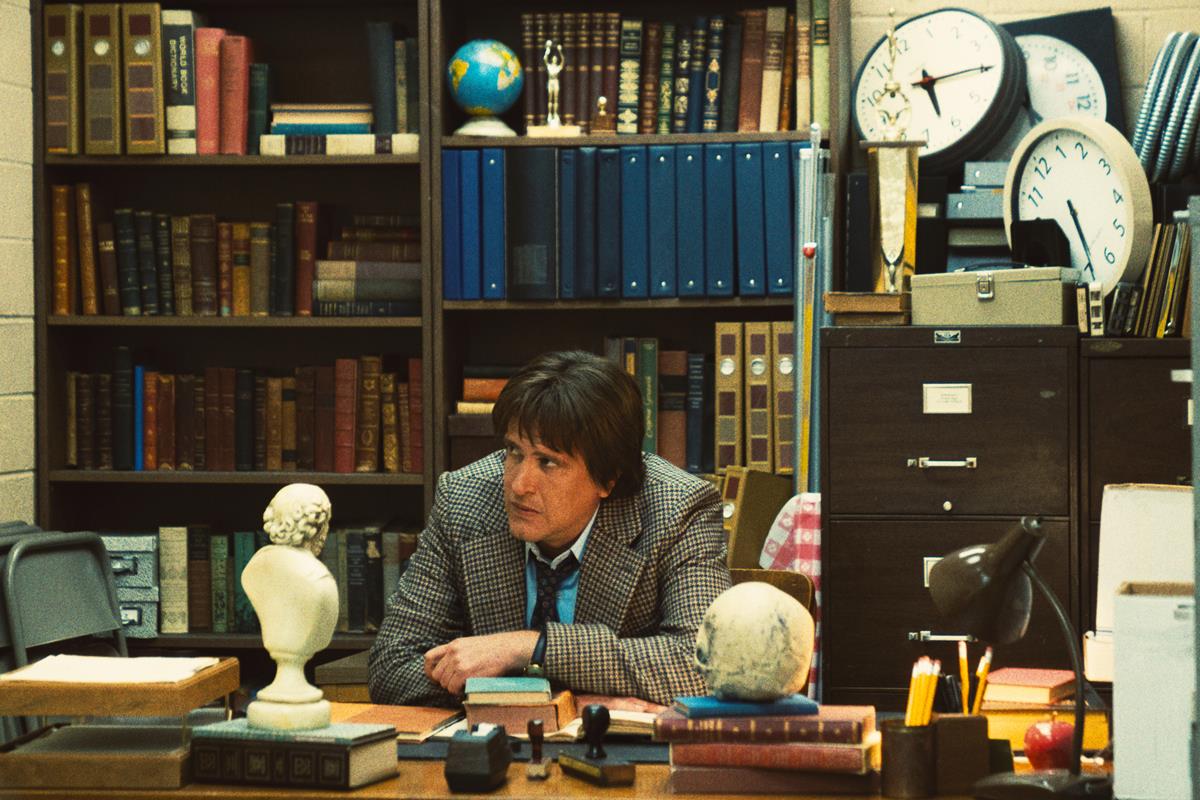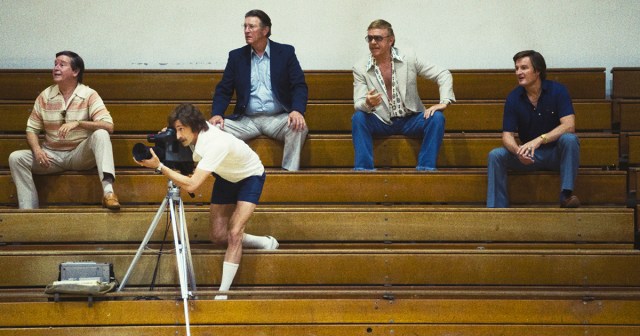
In the 70s, the business of basketball was more than overshadowed by show business itself, especially in Los Angeles, where Hollywood ruled the roost. At the same time the NBA languished in the background and had all but lost its way.
In fact, Noel Murray’s review of the new HBO docuseries, Winning Time: The Rise of the Lakers Dynasty, for AV Club, called it a niche league that had a lack of “likeable players — or, to put it in the terms the era’s television executives were using behind closed doors, a lack of white players.”
But, by the close of the decade, things started to reverse. Over a decade of “showtime” — the phrase used to describe the team’s relentless style of play and the razzle-dazzle, sports-as-entertainment atmosphere — began with the Lakers winning five NBA championships along the way. “The 1979 NCAA basketball championship broke viewership records, because of the marquee matchup of the intense Indiana farm boy Larry Bird and the flashy Michigan kid Earvin ‘Magic’ Johnson, both of whom were about to be NBA rookies.”
READ MORE: The wildly entertaining Winning Time tells the story of the 1980s Lakers, with an all-star cast (AV Club)
But the switch-up wasn’t due just to Bird and Magic. Sopan Deb at The New York Times drilled down to pick out other catalysts of change. “The team crossed over into pop culture consciousness in a way no NBA franchise had. It spurred discussions about the place of money, race, celebrity and sex in the game. With their brash new-money owner, Jerry Buss, the Lakers challenged what was then the status quo — which included poor attendance and ratings. They helped save the league.”
READ MORE: ‘Winning Time’: When the N.B.A. Went Pop (The New York Times)
HBO’s newest docudrama is based on the book Showtime, by sports journalist Jeff Pearlman, but it is executive producer and pilot director Adam McKay (The Big Short, Don’t Look Up) who arguably gives the show its edge.
Deb describes the style as “Chatty, fast-paced and fourth-wall-breaking. Cuts are frenetic, needles drop hard, and characters frequently deliver commentary and exposition straight to the camera. Grainy film and glitchy video mix with real and faux archival footage, add to the vintage vibes.”
But McKay had a vested interest, “I was a hardcore Celtics fan,” he told Entertainment Weekly’s Derek Lawrence. “I hated the Lakers in the ‘80s — they were the villains. It wasn’t until later that I realized, no, the Celtics were the villains, and the Lakers were actually incredible; they changed the way basketball is played, the way it related to the culture, and the way celebrities were created out of the sport.”
“It involves not kings and queens, but celebrities, entrepreneurs, and visionaries who were changing culture,” said showrunner Max Borenstein, who adapted the Showtime book for television.
READ MORE: It’s Showtime! The Winning Time dream team on capturing the Laker magic (Entertainment Weekly)
Josh Spiegel, at Slash Film, celebrated the cast, especially John C. Reilly as the Lakers owner Jerry Buss, when by all accounts the role was previously promised to Will Ferrell. “Will Ferrell was initially set to play Buss, but was recast due to not looking as much like the late billionaire, the choice frankly makes sense,” Spiegel concluded.
Other standout performances come from Adrien Brody and Jason Segel, as Lakers coaches Pat Riley and Paul Westhead, along with Quincy Isaiah as Magic Johnson and Solomon Hughes as Kareem Abdul-Jabbar.
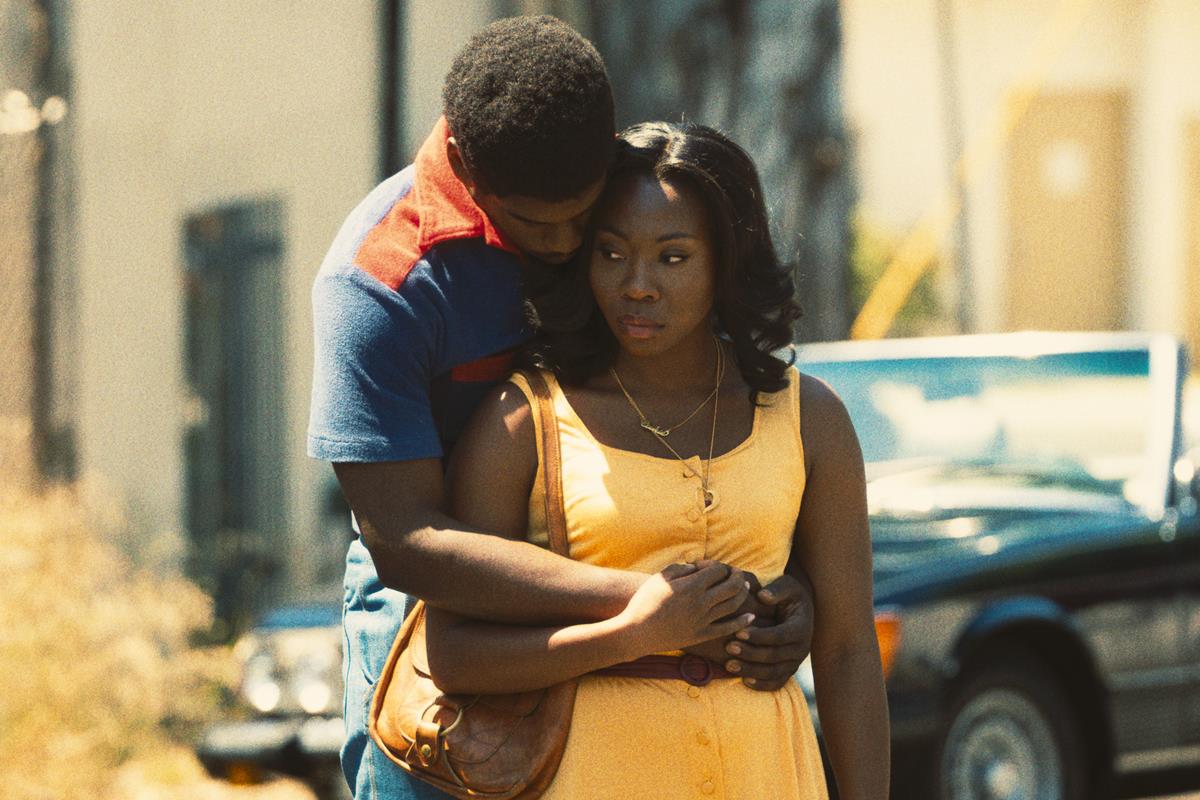
READ MORE: Winning Time Review: A Flashy Trip Through History With Plenty Of Ups And Downs (Slash Film)
“It could all be too showy and distracting, but the performances pull you in, and keep everything afloat,” says NPR’s David Bianculli. He praises actors who “can play for comedy and for drama with equal effectiveness”, while those portraying the well-known Lakers stars “pull off their portrayals with exceptional flair, both off and on the court.”
“Another nice surprise is how much attention Winning Time devotes to its women,” Bianculli adds. “From company employees to players’ mothers, wives and girlfriends, they’re all given their own chances to shine, and to have their say.”
READ MORE: Like the ‘80s Lakers, ‘Winning Time’ scores with an unconventional playbook (NPR)
In a wide-ranging discussion on The Hollywood Reporter podcast, TV’s Top Five, Borenstein opens up about his pitch to turn Pearlman’s book into a TV show and balancing fact versus fiction when it comes to the portrayal of Johnson and Abdul-Jabbar.
“Sometimes we’re compositing characters for convenience and dramatic ideas or we’re creating composite characters,” says Borenstein. “Sometimes it’s a matter of we know certain tips of the iceberg — who had relationship with Magic — and we know aspects of that relationship but they’re not a public figure, so we’d create someone new.”
READ MORE: ‘Winning Time’ Boss on Balancing Fact vs. Fiction in HBO’s Lakers Drama (The Hollywood Reporter)
Deadspin’s Lee Escobedo interviewed Borenstein, who said he was keen to “avoid the cinematic pitfalls of other basketball-centric movies by focusing on the cultural epoch the Lakers were reborn into.”
Borenstein explained how he saw this bigger picture, “To me, it is the perfect way to approach this incredible epic about the American Dream. It’s a moment about a cultural transformation in the modern NBA. A lens we can use to look at this incredible era in our country’s history and our recent history.”
The showrunner encapsulated what he meant, depicting the famous two rookies in terms that the TV advertisers could work with. “In comes Magic Johnson. And on the other coast, Larry Bird. Two guys who were perceived to be as different as two people could be. Magic is massively charismatic. Built for cameras. Instantly gregarious to reporters. And, who happened to be black. And you had a guy in Larry Bird who happened to be white, who was an equally great player, but dour, not interested in media and didn’t have natural charisma with the media that Magic did,” Borenstein said.
“It’s a story about the business of professional sports, that is an epic, not about a single season but rather a dynasty.”
READ MORE: Let’s talk the Lakers, the Magic and HBO’s ‘Winning Time’ (Deadspin)
Borenstein also had an unusual comparison to make for his show, as he told Jamie Burton at Newsweek. “I’ve compared it, not tonally or in any other way, to The Crown or a show like The Crown, in the sense that it’s based in fact.”
He continued: “It’s inspired by a true story. Obviously, there are liberties taken because it’s a dramatization and we have an incredible cast playing these characters.”
READ MORE: LA Lakers Drama ‘Winning Time’ is Like ‘The Crown’ According to Showrunner Max Borenstein (Newsweek)
Producer Rodney Barnes is sure that they are giving the fans what they want. He told The Hollywood Reporter’s Lacey Rose that the moments that were wanted are there, “…the seminal moments,” he said, “the hug between Magic and Kareem, the championships, the passes, the skyhook.”
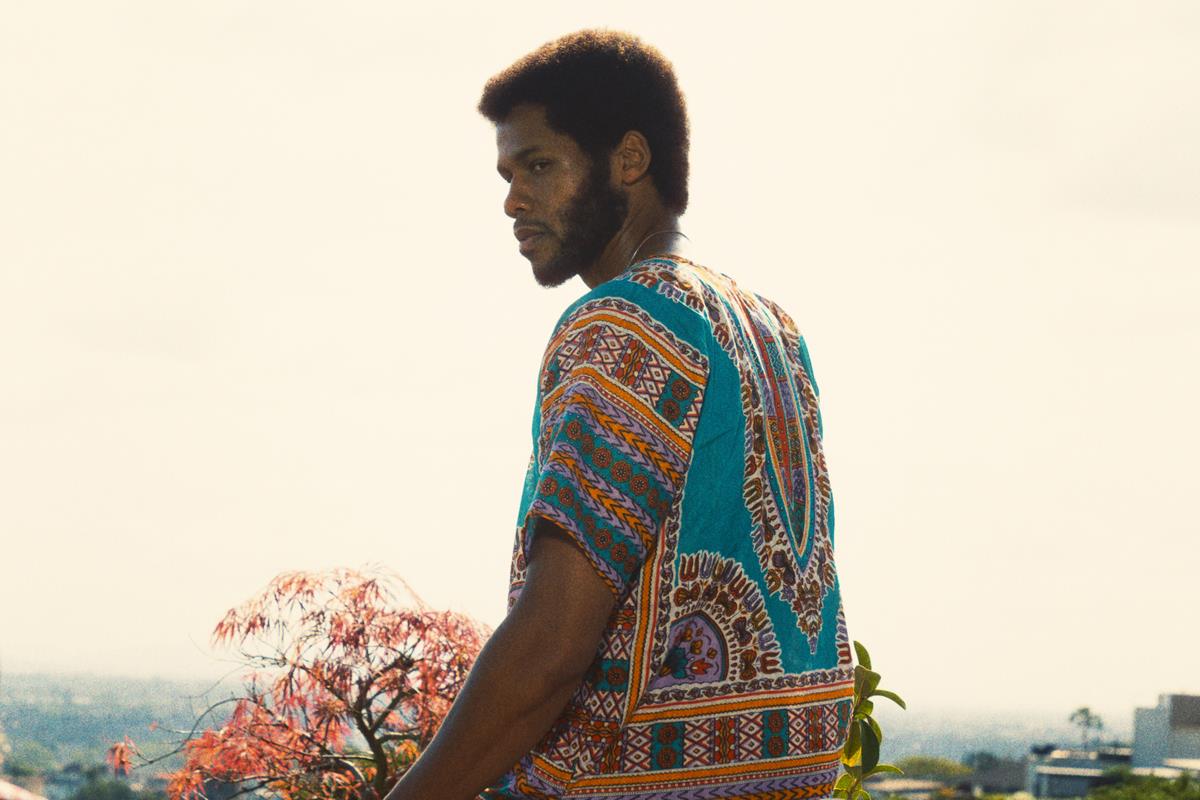
READ MORE: How HBO’s Lakers Series Ticked Off the NBA, Ended a Friendship and Became the Most Anticipated Sports Show in Decades (The Hollywood Reporter)
“I’m old enough to have seen a lot of sports-themed movies and TV shows. And more often than not, the players are relegated to a one-dimensional idea,” Barnes tells Chris Koseluk in an interview for the Motion Picture Association’s The Credits. “That’s the funny one. That’s the bad one. That’s the surly one. And the narrative is about the coach, the owner, or a particular player. Here, we got an opportunity to really get into the nuance of the human part of being a professional athlete.”
At the same time, the writers were careful not to do a disservice to some of basketball’s biggest stars, Barnes tells Koseluk: “We’re fans of these guys. We appreciate what they accomplished. You’re trying to make this a love letter — a show of appreciation more so than anything else. So, it’s a delicate balance of storytelling, while still being true to the times and respectful at all times.”
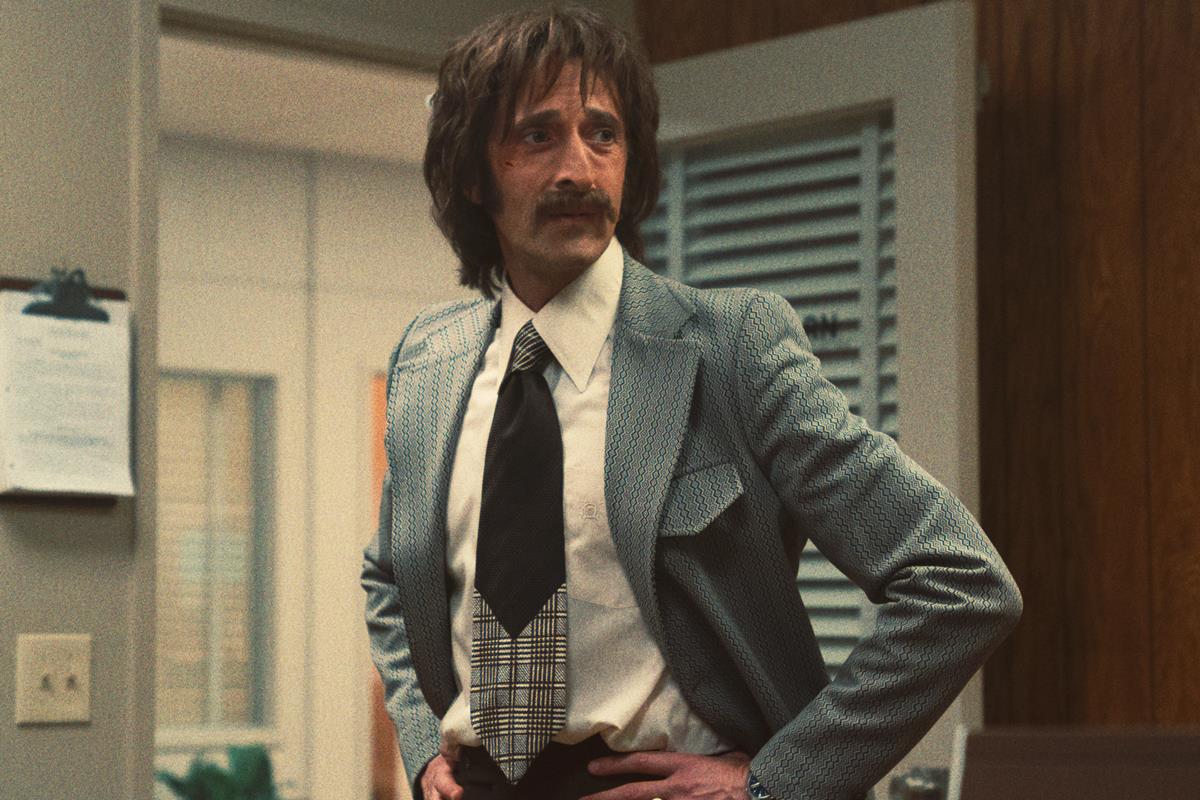
READ MORE: “Winning Time” Writer Rodney Barnes on Scripting HBO’s Fast-Breaking Lakers Series (The Credits)
Vulture‘s review by Jen Chaney seems to get hung up on the visual aesthetic. “The visual patina might best be described as Late-’70s Sepia Haze. It is purposely grainy as a nod to its era and washed out frequently by the blinding L.A. sun. Even if you watch Winning Time in HD, it will still look like an old glitchy videotape or a 1980 broadcast coming through with cloudy reception on a TV with rabbit ears.”
But Chaney doubles back when the actual basketball begins. “I love that this series devotes minutes to observing strategy sessions and Laker practices where the guys try to undo years of playing traditional, slower basketball.
“Winning Time shows us the late nights spent studying plays, early morning shootarounds, and locker-room arguments that constitute a day at the Lakers’ office. That is much appreciated.”
READ MORE: Winning Time Certainly Puts on a Show (Vulture)
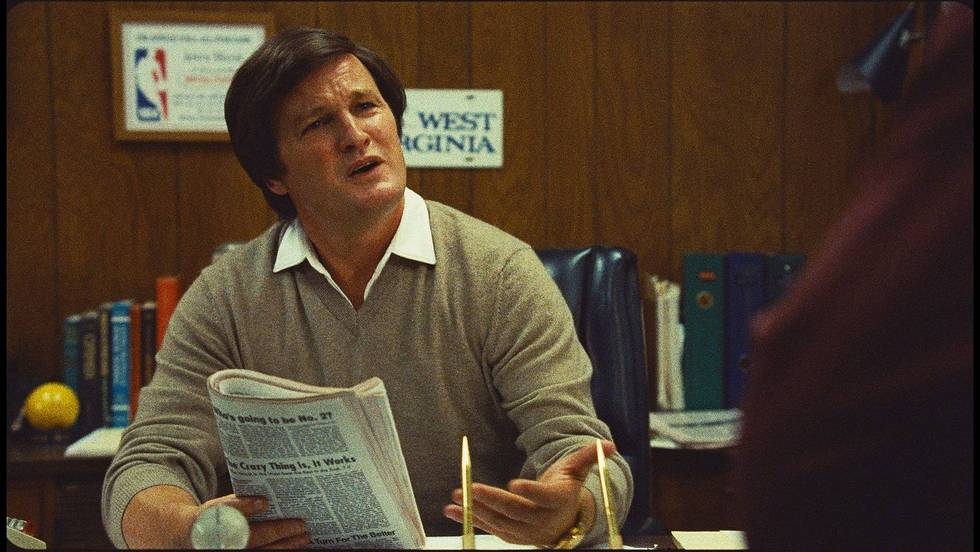
The “glitchy, 1980s” look of the series is of course very deliberate, but actually has its roots in the production lacking any NBA permission to use basketball archival footage. IndieWire’s Bill Desowitz takes an in-depth look at the process that McKay, co-cinematographers Todd Banhazl (Hustlers) and Mihai Malaimare Jr. (The Harder They Fall), and Oscar-nominated editor Hank Corwin (Don’t Look Up) used to “evoke the ‘80s as a cultural snapshot” in the series.
According to Desowitz, Banhazl decided to emulate the look of Kodak’s long-defunct Ektachrome for the present day ‘70s and ‘80s, and the even older Kodachrome look for the ‘50s and ‘60s. “Playing into Corwin and McKay’s mix-and-match archival style, the DP shot a variety of film stocks — 35mm, 16mm, and 8mm color and black-and-white — and even incorporated long outdated tube video technology (Ikegami ITC-730A and HL-79 cameras),” says Desowitz.
Banhazl push processed all the 35mm color film to make it grainier and add contrast, underexposed the negative so that it was dirtier, instructed the film lab not to dust-bust the negative before scanning (thus leaving dirt particles on the neg), then pushed the look even further digitally in the grade with Company 3 colorist Walter Volpatto. They also shot a lot on 8mm, sometimes putting a pistol grip on the 8mm camera to give footage a home movie look.
“They took this even further by intercutting 8mm or Ikegami footage during present-day scenes to extend the archival look for greater intimacy and vulnerability,” says Desowitz.
READ MORE: Winning Time: Behind HBO’s Lakers Series Archival Footage Look (IndieWire)
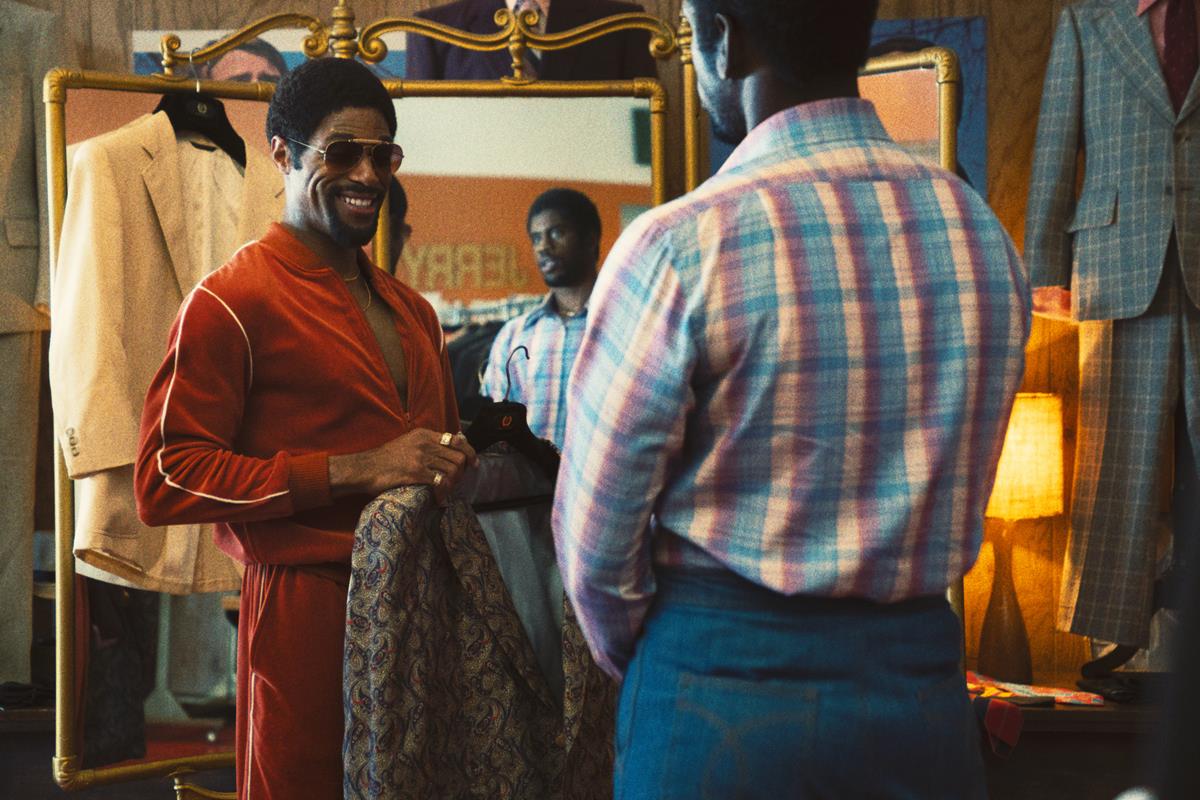
Banhazl was recently recognized for his work on Episode 5, “Pieces of a Man,” with an Emmy nomination for Outstanding Cinematography for a Single-Camera Series (One Hour).
“Our scripts had a kaleidoscopic, maximalist bravado and we wanted that reflected in the images. We based the looks on the dominant advertising styles of the 1960s, ‘70s, and ‘80s, to reinterpret our collective memory of what America looked like to Americans at the time,” he tells IndieWire’s Erik Adams and Chris O’Falt.
“Our main look was an older 35mm Ektachrome reversal film, and mixing into that we used 8mm to recreate a sense of time and place, documentary-style 16mm for basketball and for emotional accents within scenes, as well as vintage Ikegami tube video cameras from the 1980s to recreate the famous basketball games on TV as well as during narrative scenes to see our characters in a more vulnerable way contrasting with the more bold 35mm. We also used black and white film for special shots within scenes for jazzy accents.
“The idea was to blur the line between documentary realism and the iconic mythic worlds that these characters inhabited. I always thought of the visual style of the show as a collage of textures, images, and ideas: an American culture mixtape.”
READ MORE: Emmys 2022: Cinematography Nominees on How They Shot the Year’s Best Shows (IndieWire)
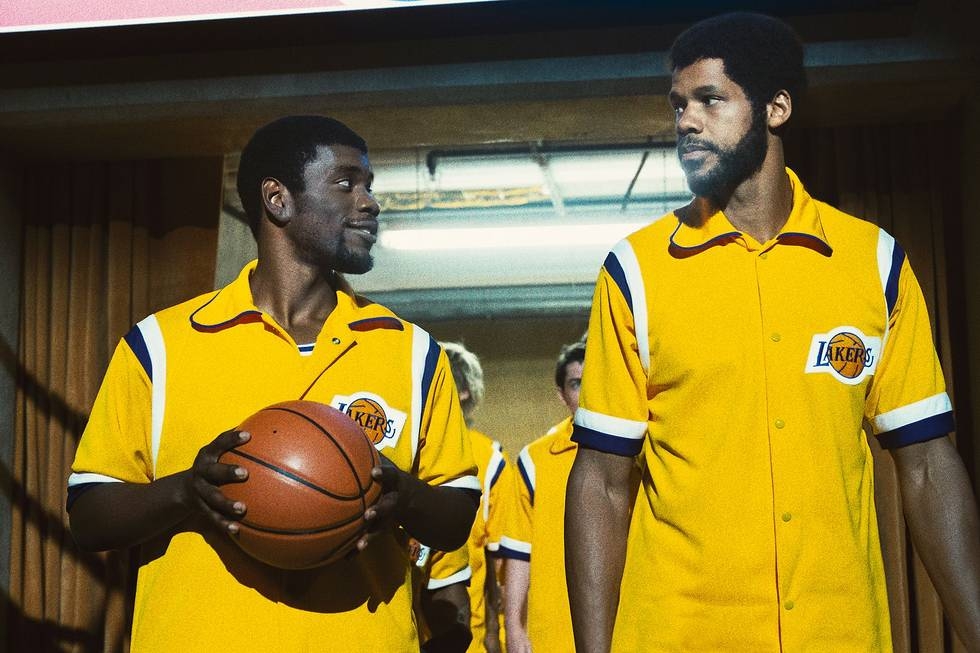
It all goes to show necessity can often a wellspring for creativity. One has to wonder what the show would have looked like if there was co-operation from the subjects involved.
Not that Borenstein seems too bothered. According to Alexandra Del Rosario at Deadline, the series co-creator addressed the lack of cooperation from the Lakers themselves and the Buss family during a CTAM session, saying, “We made this show as fans with a tremendous amount of respect and love for all these characters of the NBA and Lakers and I think it hopefully shows on screen. I can only imagine how strange it must be to have a movie made about your life, or show made about any aspect of your life so I never presume what people will or won’t do but on our end, this was made with great love and appreciation.”
READ MORE: ‘Winning Time’ Co-Creator Says HBO Series Was “Made With Great Love And Appreciation” Despite Lack Of Lakers Cooperation (Deadline)
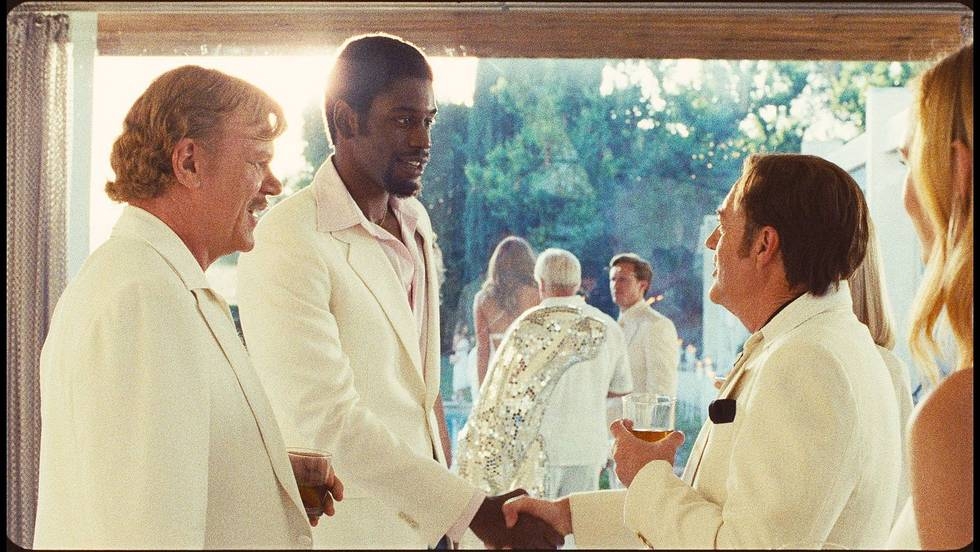
IndieWire’s Samantha Bergeson digs deeper, reporting that the show’s team has made clear that the NBA and athletes featured in the series aren’t profiting from Winning Time. “HBO confirmed that NBA league lawyers have reached out to the network regarding the use of official NBA logos and trademarks,” says Bergeson, while a Lakers representative has said: “We have no comment as we are not supporting nor involved with this project.”
“The real-life Johnson previously said he was “not looking forward” to the premiere of Winning Time, and is instead focusing on his own upcoming four-part Apple TV+ docuseries, They Call Me Magic,” she adds.
“Former teammate Abdul-Jabbar also noted that “the story of the Showtime Lakers is best told by those who actually lived through it,” Bergeson continues. “Both Abdul-Jabbar and Johnson are participating in a ‘Lakers-sanctioned’ Hulu docuseries to be released in late 2022.”
READ MORE: Adam McKay Isn’t Waiting for NBA to Approve ‘Winning Time’: ‘We’re Coming at This with Good Intentions’ (IndieWire)
Star Quincy Isaiah and co-creator Jim Hecht are keen to counter this judgement from the athletes.
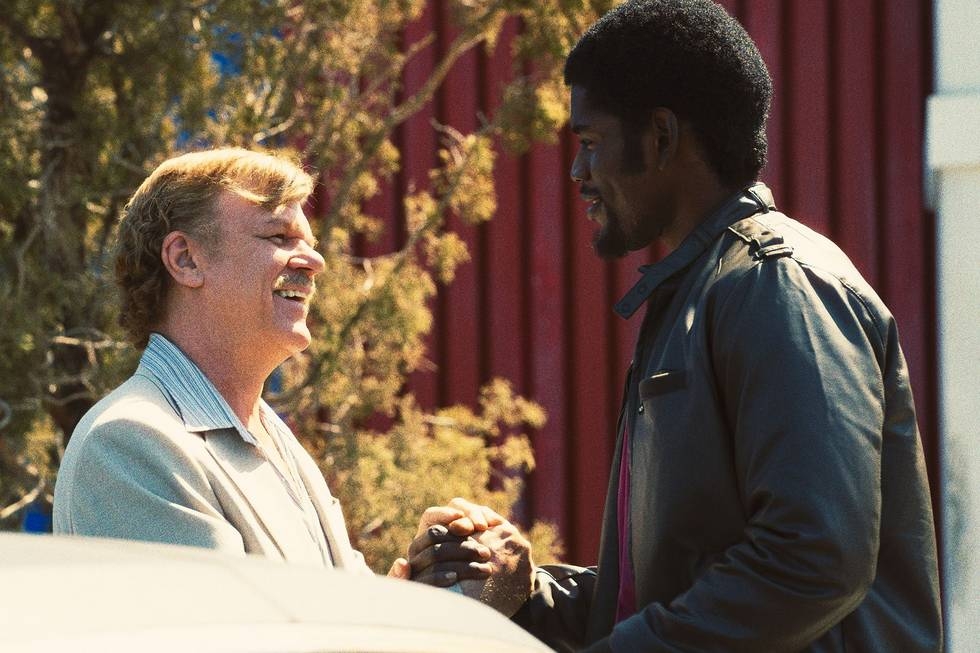
“I just know what we put into it, the respect and the admiration that we have, and I just hope that that comes across,” Isaiah tells Kirsten Chuba at The Hollywood Reporter. “It’s about 1979 and a rookie at 20 years old moving from Michigan to L.A. I hope that people understand that and that who we’re talking about in the show isn’t the man he is today.”
“We wanted to have a perspective that was objective, and there was always this thought that if you go to one person it becomes their story,” Hecht tells Chuba. “I love The Last Dance, love it, but that’s Michael [Jordan]’s story, and this… is a lot of people’s story and has a different perspective on it. That’s what makes it a good drama because you should root for all of our characters when they’re in competition with each other, when only one can win, and they’re all coming from some place real.”
READ MORE: ‘Winning Time’ Team on Portraying Iconic Lakers and Awaiting Magic Johnson’s Reaction (The Hollywood Reporter)
Want more? In the video below you can watch former Laker Rick Fox in conversation with Quincy Isaiah and executive producers Adam McKay and Max Borenstein about the first episode of the series:


